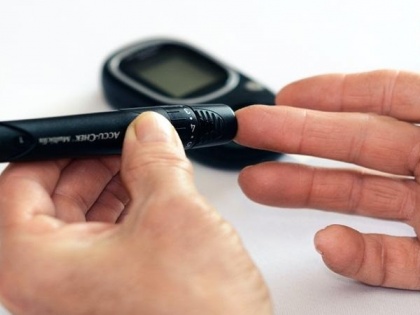Low birth weight may raise risk of Type-2 diabetes later
By IANS | Published: June 13, 2023 05:03 PM2023-06-13T17:03:04+5:302023-06-13T17:25:29+5:30
London, June 13 Children born with low birth weight were seen to be at higher odds of developing ...

Low birth weight may raise risk of Type-2 diabetes later
London, June 13 Children born with low birth weight were seen to be at higher odds of developing Type-2 diabetes in adulthood, according to two studies.
The studies, published in the journal Diabetologia, showed that each 1 kg decrease in birth weight was associated with a 3.3 year younger age of diabetes onset, lower body mass index and smaller waist circumference.
Babies born below 3 kg were also associated with increased overall comorbidity, with a 36 per cent higher chance of having 3 or more comorbidities and a 26 per cent higher chance of having a systolic blood pressure above 155 mm Hg (severe hypertension).
Type-2 diabetes patients with lower birth weight also show a higher use of diabetes drugs than those with normal birth weight.
"An adverse foetal environment reflected by low birthweight is a strong and non-genetic risk factor not only of developing Type-2 diabetes per se, but in addition for the development of a relatively more severe subtype of diabetes with earlier disease onset, more complications, and co-morbidities, as well as with an increased need for clinical care and medical treatments," sad researchers including Dr Rasmus Wibaek, from Steno Diabetes Center Copenhagen in Denmark.
The average birth weight in Denmark is around 3.4 kg. Clinically defined low birthweight (below 2.5 kg) yielded stronger associations, and a higher birth weight was associated with characteristics mirroring lower birth weight in opposite directions.
The first study included 4,590 participants who were followed for 19 years.
The incidence rate of Type-2 diabetes increased with age, and was higher in male participants. It decreased linearly with increasing birth weight, with each extra kg of birth weight linked to a 40 per cent reduced risk of Type-2 diabetes, which continued into the highest birth weights.
Notably, the absolute rate of increase in Type-2 diabetes incidence across age was markedly steeper in persons born with lower birth weights compared with higher birth weights.
The second study, also led by the same research team, analysed midwife records for 6,866 individuals with diabetes.
They found those with low birthweight had a 28 per cent increased risk of being diagnosed with diabetes aged under 45 years (more likely to be diagnosed younger), and a 30 per cent lower risk of being diagnosed aged over 75 years (less likely to be diagnosed older).
Birthweight under 3 kg was associated with reporting fewer individuals with a family history of diabetes.
Disclaimer: This post has been auto-published from an agency feed without any modifications to the text and has not been reviewed by an editor
Open in app